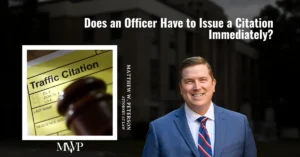
If you’re not a citizen, even if you’re here legally, a criminal conviction can be devastating. It can mean deportation or not being allowed back into the country if you leave.
It’s important that before you plead guilty to a crime that you understand all the consequences, and immigration law can be confusing and counterintuitive. What counts as a conviction for immigration purposes can be a moving target, though.
Alabama law says that a youthful offender adjudication “shall not be deemed a conviction of a crime,”[1] but that’s not conclusive for immigration purposes. In 2001, the Board of Immigration Appeals decided that a youthful offender conviction under New York’s statute was not a conviction for immigration purposes.[2]
However, in 2013, the 11th Circuit held that a Youthful Offender conviction under South Carolina’s youthful offender statute was a conviction for immigration purposes.[3]
So is Alabama more similar to South Carolina or New York? The distinction between the two schemes seems to be that New York treats a Youthful Offender adjudication as an “adjudication of status” and is “civil in nature,” as opposed to the South Carolina scheme that determines the guilt or innocence of a crime.[4]
New York’s youthful offender scheme, like Alabama’s, says that a youthful offender adjudication is “not a judgment of conviction for a crime”[5], whereas the South Carolina statute specifically calls it a conviction.[6] New York’s scheme also seals the records of youthful offenders and conducts all hearings in private, similar to Alabama,[7] while South Carolina’s statute does not seem to conduct youthful offender hearings in private.
So Alabama’s system seems to be more like New York’s than South Carolina’s, at least in some important ways. This may mean that a youthful offender conviction does not qualify as a conviction for immigration purposes, but you never know how the courts will view it.
[1] Ala. Code 1975 § 15-19-7
[2] In re Devision-Charles, 22 I. & N. Dec. 1362, Interim Decision 3435 (BIA 2000). Accessible at: http://www.justice.gov/sites/default/files/eoir/legacy/2014/07/25/3435.pdf
[3] Cole v. U.S. Atty. Gen., 712 F.3d 517 (11th Cir. 2013).
[4] Cole, 712 F.3 at 535 n.2.
[5] McKinney’s CPL § 720.35.
[6] S.C. Code Ann. § 24-19-50.
[7] McKinney’s CPL § 720.15.



